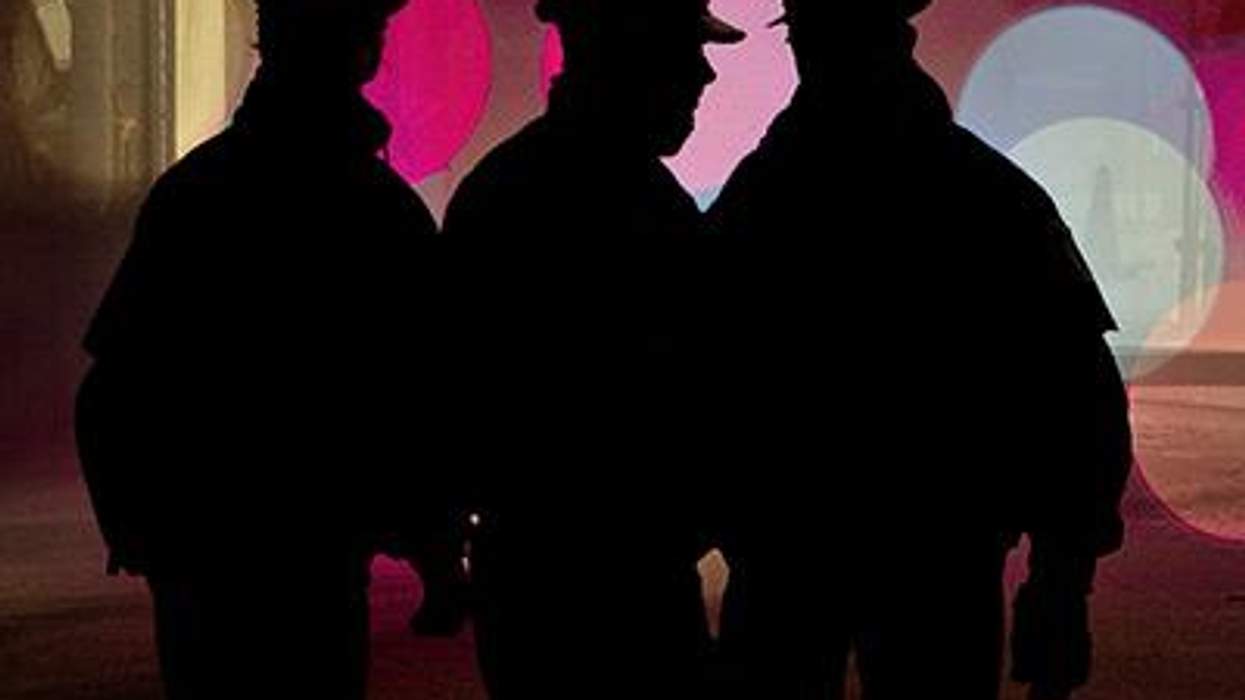"It is hard on the other hand to blame the policeman ... he too, believes in good intentions and is astounded and offended wh en they are not taken for the deed. ... He becomes more callous, the population becomes more hostile, the situation grows more tense. ... One day, to everyone's astonishment, someone drops a match in the powder keg and everything blows up. Before the dust has settled or the blood congealed, editorials, speeches and civil-rights commissions are loud in the land, demanding to know what happened. What happened is that Negroes want to be treated like [humans]." -- James Baldwin
During DC Black Pride weekend last year, friends came to visit my partner and me at our home about two hours outside of Washington, D.C. We decided to go into the city to attend a friend's party to celebrate black LGBT identity, brilliance, and resilience.
There is a stretch of highway entering the city where the speed limit decreases from 55 to 45 miles per hour, and I had slowed to 42 mph in preparation for the decreased speed limit. Moments later, I saw the all too familiar sight of police lights in my rearview mirror. At that time, Michael Brown was still an alive-and-well 17-year-old struggling to finish his senior year of high school, but Rekia Boyd, Aiyana Stanley-Jones, and Victor White III had all made national headlines as young black people killed by police.
I recalled lessons from my mother in interacting with law enforcement: speak as clearly and calmly as possible; don't make any sudden movements, show your hands at all times; narrate your movements. Her wisdom echoed cacophonously as the white, 30-something male officer approached my vehicle and peered into it suspiciously eyeing the two black femme women, a black man, and my genderqueer masculine-presenting partner. He asked if I knew why he stopped us. I didn't. After a series of inane and invasive questions -- where we were going; if we were planning to drink while we were out; how we were planning to get home -- the officer told us he had stopped us because my tags were registered to another vehicle.
I was relieved. Three days earlier I had bought a new car and had my tags transferred from the vehicle I'd traded in. I explained this to the officer. "My temporary registration and purchase order are in my glove box," I informed him. As my partner opened the glove box to retrieve them, the officer put his hand on weapon as if to ready himself to discharge it. In a fit of misdirected anger and fear, I screamed at my partner to not move and -- again -- told the officer that I was going into my glove box to retrieve my registration and purchase order. His posture relaxed slightly, but his hand did not move from his weapon.
The threat of death was imminent, overpowering, and terrifying. That our lives could be "justifiably" extinguished based on an officer's fear made my stomach turn.
There has never been a dearth of stories of how black people's routine encounters with law enforcement have led way to their demise. I imagined what headlines would say if this officer were to kill us: four unarmed black queer and trans people. Would anyone care?
In those moments, it literally made no difference that we were a mechanical engineer, an executive director, a scholar, and a program manager at the Human Rights Campaign -- we were one sudden movement away from becoming a hashtag.
This truth colors every interaction black people -- including, and perhaps especially, LGBT black people -- have with law enforcement. We know that infractions for which white people are barely slapped on the wrist can be used to justify our deaths. We know that simply by virtue of existing, our bodies are seen as hyper-criminal, worthy of being policed and subjected to undue and excessive force, as was the case with the young Freddie Gray, who met his demise Sunday after having two spinal vertebrae broken by several Baltimore police officers.
In 2015, 102 black people have been killed by police, representing a third of all police-related deaths. The most hyper-visible of these cases, Walter Scott, has only come to light because of the preponderance of video evidence that clearly depicts the distressingly cavalier nature by which the officer kills, arrests, and plants evidence on Scott.
Police violence does not just affect the lives of presumed straight cisgender black men. Almost 40 percent of black transgender people who have interacted with police reported that officers had harassed them.
Issues of police violence affect us all because we often face varying degrees of hostile encounters with those charged to protect and serve us. As a black LGBT person, the potential for violence from law enforcement is something I live with daily. And since LGBT people come from different backgrounds, cultures, and communities, it is our collective social responsibility to speak up for all minority groups whose lives face unthinkable harm and danger from those behind the shield.
The pursuit of justice is not complete until every human being -- regardless of who they are -- is treated with dignity and respect.
Every 28 hours, a black person is killed by the police, security guards, or a vigilante. Some of those black people are LGBT. They deserve our advocacy too.
SAMANTHA MASTER is a black queer feminist activist and educator, a member of the Black Youth Project 100, and the youth and campus engagement manager at the Human Rights Campaign. Tweet her @thefirenextime.




































































Charlie Kirk DID say stoning gay people was the 'perfect law' — and these other heinous quotes